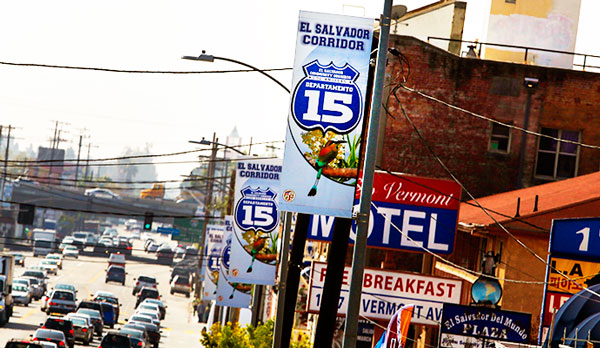Trending
Here’s how the Trump admin’s El Salvador decision might play out in LA’s housing market
Clusters of Salvadorans live in the San Fernando Valley and Central L.A.

From TRD LA: The Trump administration’s decision to end a special status for citizens of El Salvador could have a significant impact on L.A.’s housing market, experts said, and could decrease the rent-stabilized stock in certain Salvadoran strongholds.
On Monday, the administration ended the “Temporary Protected Status” (TPS) program for Salvadorans, a move that will force over 200,000 citizens of that country who have been living in the U.S. to leave by September 2019.
That includes roughly 30,000 people living in L.A., according to a 2017 study by the Center for Migration Studies.
President George Bush signed the TPS program into law in 1990, and it was renewed several times by presidents George W. Bush and Barack Obama. In 2016, El Salvador’s poverty, drought and gang violence were cited as reasons to renew the program.
L.A. County alone is home to 263,000 Salvadorans, representing nearly 20.6 percent of the entire Salvadoran population living in the U.S., according to a 2012 – 2016 Migration Policy Institute study. California is home to over 420,000. (More than 13,000 El Salvadorans reside in Miami-Dade county, while about 114,000 of them reside in New York state.)
Many have settled in a section along Vermont Avenue near Pico-Union. Officials designated the strip the “El Salvador Community Corridor” in 2012, marking the first designated Salvadoran neighborhood in the city.
Others, particularly from the first wave of immigrants to come to Southern California, settled in the San Fernando Valley, particularly in the Van Nuys neighborhood. “Van Nuys has become kind of an expensive area in the Valley now, but when I was younger and used to live there, it was the main Salvadoran population stronghold,” Jesus Covarrubias, a Berkshire Hathaway Home Services broker, said.
Covarrubias mostly works in the San Fernando Valley, but he repeatedly visits the Saint Thomas Apostle Church at 2727 W. Pico Boulevard, where “everybody is either from El Salvador or has a descendant from El Salvador.”
Many residents of the Pico-Union and surrounding neighborhood live in rent-stabilized apartments. Manuel Fierros of Ontrac Real Estate recently brokered the sale of 1705 W. 7th Street for $805,000, property records show. The five-unit building was largely occupied by Salvadorans paying rent-controlled rates of roughly $1,200 per month, Fierros said. The buyer hopes to eventually get the units to market-rate, he added.
Generally, only L.A. buildings built before October 1978 have limits on how much rents can be raised. But landlords can sometimes avail of “vacancy decontrol” when a rent-stabilized tenant voluntarily leaves, allowing them to charge a new tenant market rates.
The displacement that ending TPS would cause could put a serious dent in the area’s rent-stabilized stock, according to Paavo Monkkonen, a professor of urban planning at UCLA’s Luskin School of Public Affairs.
“It would be terrible for the neighborhoods where they are working and living,” Monkkonen said. “If people are forced out, landlords would raise the rent to the next tenant and it would be bad for affordability.”
“Based on careful consideration of available information, the Secretary determined that the statutory conditions relating to the earthquakes in January and February 2001 supporting El Salvador’s TPS designation no longer exist,” a USCIS official said in a statement. “Salvadorans in the US who benefited from TPS may still receive other protections under our immigration system for which they are eligible.”
Rene Fuentes, a Salvadoran-born broker with Coldwell Banker in the Valley, said his clientele is roughly 60 percent Latino, with probably half of that being Salvadoran. He often sells single-family homes and townhouses to Salvadorans in the Valley, where the median value for a single-family home is $447,000, according to Zillow.
Fuentes has family members and friends here under TPS, and while he doesn’t necessarily believe the administration’s announcement will bear out, he foresees it impacting housing either way.
“The people that have houses have equity, and if they’re forced to leave, they’ll try and sell it and get the money,” Fuentes said. “They will try to keep the properties for as long as they can but we’re going to see more properties come into the market.”




